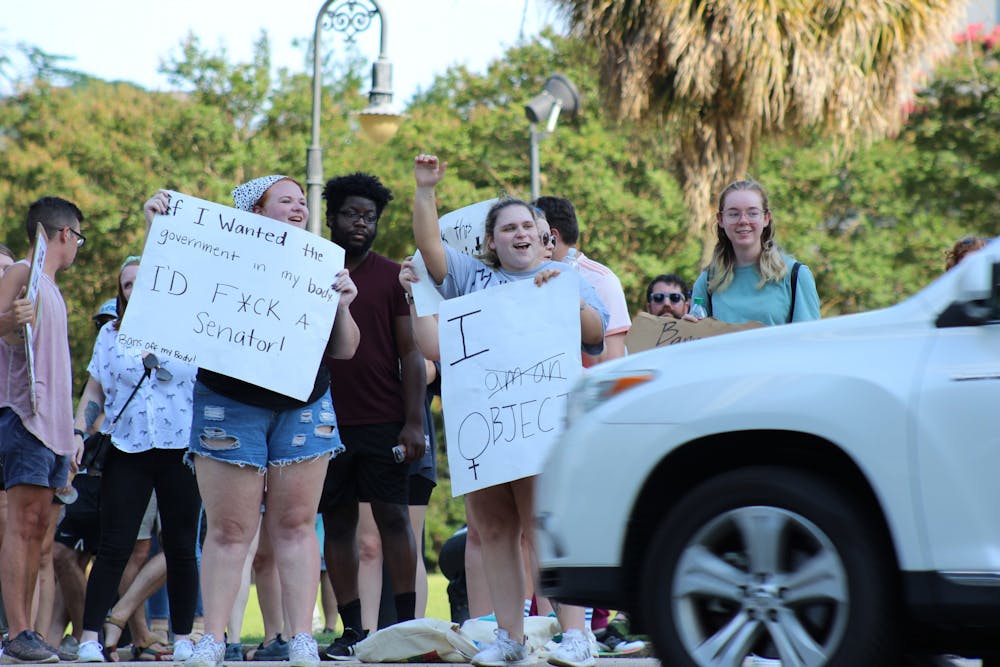On June 24, Planned Parenthood held a protest in front of the Statehouse just a few hours after the Supreme Court of the U.S. (SCOTUS) ruled in a 6-3 decision in favor of striking down Roe v. Wade. Now, each state has the option to outlaw access to abortions.
This puts South Carolina in position to legalize the "Heartbeat Bill", a six week ban on abortions that is no longer blocked by federal courts.
The decision encouraged hundreds of protestors to gather at the Statehouse and voice their opinions on the issue. Quel Payne, a 29-year-old protester, had a hard time processing the SCOTUS decision.
“[The decision] is setting us back in time so much,” Payne said. “I feel like I still haven’t processed the whole thing, but it’s definitely unsavory.”
While women were the focus of the protest, they weren’t the only ones to attend. One protester, Justin Hunt, is a Black Lives Matter activist and attends protests regularly.
“I’m here because another oppressed group is having their rights stripped away, just like I don’t like it happening done to me,” Hunt said. "If we don't start now, as far as making our voices heard by everyone, it's only going to get worse."
Allison Terracio is the organizing program coordinator for Planned Parenthood South Atlantic and the event organizer. She, like many others, was upset by the decision.
“It’s not just my body as a woman. It’s your body as a trans person. It’s your body as a queer person,” Terracio said.“This is going to take some time. This is going to take some heartache. This is going to take some stretching out of your comfort zone.”
The crowd chanted “my body, my choice” during the protest, and demonstrators held up signs saying things such as "keep your laws off my body" and "bans off our bodies." The event also included a time for leaders and individuals to speak.
Participants shared personal stories about their experiences with abortion. Reign Capers, one of the speakers, said they are a sexual assault survivor and that they were lucky to have not gotten pregnant by their assaulter.
“There’s no reason why someone who has been a victim of abuse should have to carry a baby to full term,” Capers said. "But you don't have to have something traumatic happen to you to have a ... abortion"
In their joint dissent, Justice Stephen Breyer, Sonia Sotomayor and Elena Kagan said that other precedents involving "bodily integrity, familial relationships, and procreation" may also be at risk after the decision. This makes people such as Ashlan Andrews, a Columbia resident, worried about what decisions the court will make in the future.
“It makes me wonder what are the things they said that they will protect, that they will then vote and strike down,” Andrews said. "It makes me nervous about what the future holds for a lot of people in America.”
After the speakers concluded their speeches, the protesters were encouraged to talk to each other to establish a sense of community. They were also told to show their support by calling their representatives' offices and asking them to stand up to legislation that threatens the right to an abortion.
"We'll get brave together," Terracio said. "We have to get braver together."

